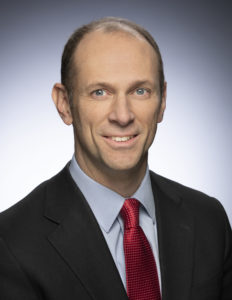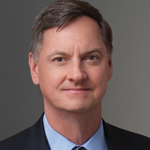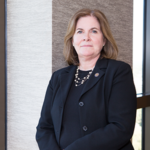
Charles Evans and Esther George were both born on January 15, 1958, which means they bumped up against the Federal Reserve’s mandatory retirement age for bank presidents last month. Leadership changes, therefore, are underway at the Chicago and Kansas City Federal Reserve Banks: Austan Goolsbee was named the new president and CEO of the Federal Reserve Bank of Chicago. The Federal Reserve Bank of Kansas City has yet to permanently fill the vacancy created by George’s departure; she was replaced on an interim basis by Kelly Dubbert, first vice president and chief operating officer, on Feb. 1.
Goolsbee has an academic background, having served as a professor at the University of Chicago Booth School of Business for 28 years. He previously served in Washington D.C., as chair of the Council of Economic Advisors under President Barack Obama. His appointment was announced Dec. 1, 2022, with Jan. 9 being his first day on the job.
“I am both humbled and excited to serve the public in this role,” Goolsbee said. “These have been challenging, unprecedented times for the economy. The bank has an important role to play in helping the District get through them and to thrive going forward.”
Goolsbee, 53, succeeds Evans, who joined the Chicago Fed in 1991 and became its president in September of 2007.
In a Q&A published on the Chicago bank’s website, Evans reflects on what he might have done differently in terms of monetary policy during his tenure. “If I had appreciated that the current inflation — supply-shock-induced high used-car prices and all of that, the semiconductor chips — was going to be much more persistent than the transitory thing we started saying at the beginning, I would have moved earlier. Once we started doing 75-basis-point increases, we made up for lost time very quickly. It’s hard to imagine that we would have been at a higher funds rate than we are at now. It just would have been more gradual.”

Regarding management challenges as president of the bank, Evans said: “I would have hoped that I would have understood earlier, been able to build more quickly, an inclusive culture. All the advantages of having more diverse voices, all of our efforts there, I think it’s served us very well. We’ve got a ways to go, but I think we’ve made great strides and the future is looking very strong.”
January 31 was George’s last day at the Kansas City Fed as president, a post she had held since October of 2011. Her KC Fed career began more than 40 years ago when she was a bank examiner, and she’s been its chief regulator for a decade. George announced her intent to retire last May; no schedule has been announced regarding the timing of the naming of a new president.
On Jan. 6, George spoke before Central Exchange, an organization in Kansas City dedicated to the empowerment of women in the business arena. She shared thoughts on monetary policy and took questions. A member of the audience asked George to reflect on her career. She said the lessons she picked up early on in her career shaped her thinking even to this day.
“Some of the ways that I think about the economy today really were shaped during the start of my career. In 1982, we had a lot of challenges in this part of the country. We had high inflation, interest rates were very high, and it hit hard in sectors like ag and energy, which are dominant in this part of the country,” she explained.

“And hundreds of banks closed, and as a young examiner coming into that world, I found myself sitting across the desk from people who for generations had provided access to credit. When those banks disappeared in that economic downturn, it was devastating to those communities. People lost their ability to get credit. The role that those small banks played and the vibrancy of those communities changed dramatically. The connections between the economic factors that came to bear on our financial system really left a mark on me. It taught me to listen more. Right out of the gate of that 40-year experience that was really critical.”
Someone in the audience followed up with a question about what she planned to do next.
“I am going to take a little time and think about what I will do next, where I might be useful. So, the answer is to come,” she said.
